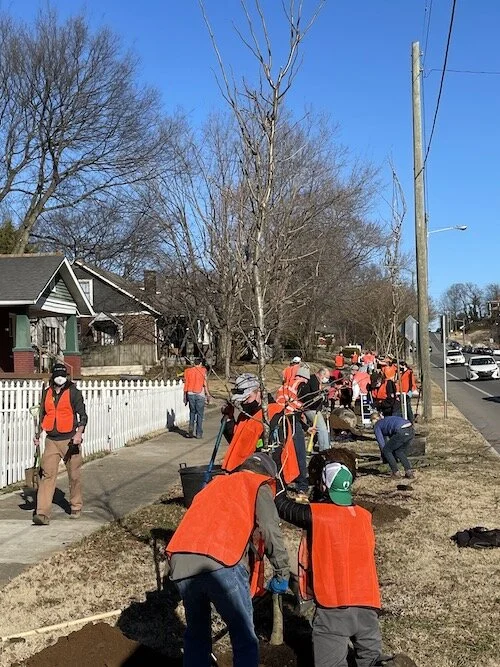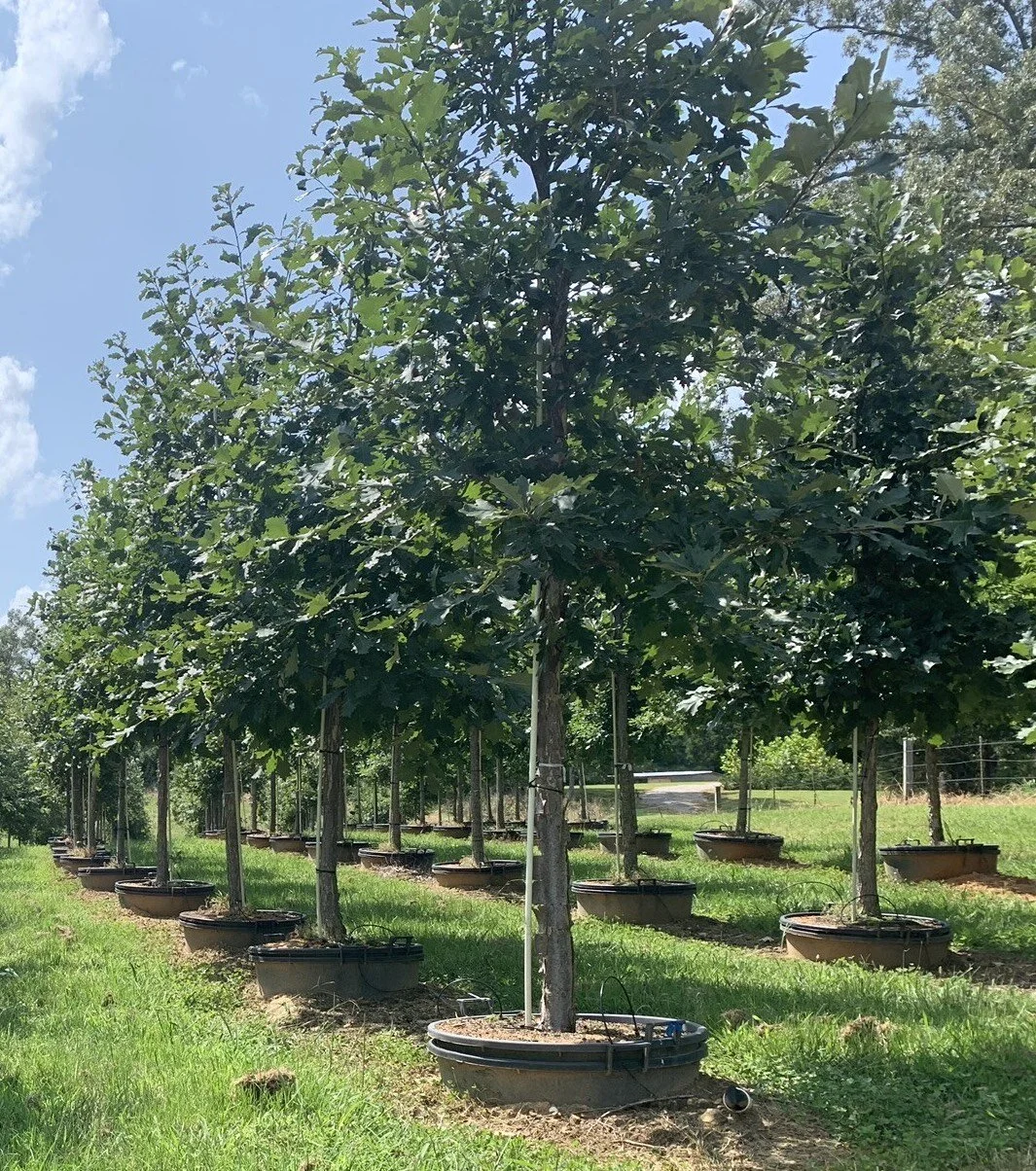If you have a newly planted tree, perhaps from the NTCC’s tree sale, read on to learn the steps you can take to be sure that you’re not overwatering your sapling this summer!
Read MoreThe mayor’s proposed budget for next year includes funding for several new employees to plant, maintain and protect trees on city property.
Read MoreLearn how to transplant a volunteer-growth sapling from one spot in your yard to another. It’s an easy way to add another tree to the neighborhood canopy!
Read MoreTo remove trees from a business or multi-unit dwelling, it’s necessary to secure a permit from the Metro Urban Forester. Read on to learn how this process works!
Read MoreAlthough 17 trees will be removed in preparation for the Music City Grand Prix auto races in August, NTCC worked closely with the mayor’s office to seek a solution that would minimize impact and maximize tree benefits for the city.
Read MoreThe Bradford, or Callery, Pear tree is an invasive species in the United States and is spreading across Tennessee. Learn why this species is causing so much damage!
Read MoreCicadas will be visiting Wilson County and eastern Davidson County, but Nashville should be clear for 2021. Read on to learn why 2024 will be another story!
Read MoreUsing fencing to protect the soil around a tree is an important way to protect a tree’s root system when construction activities are happening. Here’s why.
Read MorePruning a tree keeps it safe and healthy, but must be done in a knowledgeable way to avoid damage so it will continue to produce the benefits we enjoy.
Read MoreRead on for how vines can be a problem for the health of a tree since they block air and light from the bark, which can make the tree unhealthy, weaker, and more prone to accident.
Read MoreThe Nashville Tree Conservation Corps is excited to welcome Emily Thompson as our new Executive Assistant.
Read MoreThanks to the more than 150 volunteers who planted trees on Saturday for the Shelby Avenue Arboretum, a project developed by the Nashville Tree Conservation Corps.
Read MoreColder seasons of the year are the best times to plant a tree in Nashville. Learn why low temperatures are vital for a young tree’s root growth and future stability.
Read MoreThe Davidson County Sheriff’s Office has a horticulture vocational program for offenders that has been helpful in caring for and distributing saplings for community planting.
Read MoreIn a year that brought a powerful tornado, a derecho that downed hundreds of trees and a devastating pandemic, we’re here to celebrate all the good things that happened for Nashville trees in 2020.
Read MoreVeterans and volunteers joined the effort to transform Shelby Avenue into a beautiful tree-lined corridor. When complete, the 2.5 mile arboretum, stretching from the interstate to Shelby Park, will be one of the longest arboretums in the state, lined with more than 500 new trees.
Read MoreThe Historic & Specimen Trees Program registers and recognizes trees in Davidson County as important to the area and community.
Read MoreRemoving trees from sloping land creates dangers from erosion and landslides, so standards that regulate clearcutting in development can help make Nashville a safer place
Read MoreBL2020-288 becomes law on July 22, 2020. Starting on August 3rd, 2020, street tree requirements will be expanded to multi-family and commercial zoned properties in areas designated as “Centers” in the NashvilleNext plan.
Read MoreDid you know that Nashville has a Tree Bank, an account with funds used to plant trees on public properties? Unless you’re a commercial developer or a tree advocate (like us!) you’re probably unaware that such an account exists — much less how it operates. Since Metro’s new tree ordinance took effect on September 1, 2019, city officials have reworked procedures for the Tree Bank, trying to bring more transparency and accountability to the process.
Read More



















